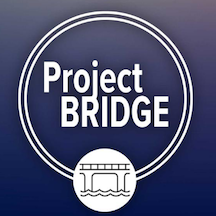 The fields of audiology and speech-language pathology have not traditionally attracted a diverse set of professionals. In 2019, the American Speech-Language-Hearing Association reported that just over 8 percent of its more than 200,000 members identified as racial minorities.
The fields of audiology and speech-language pathology have not traditionally attracted a diverse set of professionals. In 2019, the American Speech-Language-Hearing Association reported that just over 8 percent of its more than 200,000 members identified as racial minorities.
To help improve diversity in these professions, researchers in the department of communication sciences and disorders at Pennsylvania State University are undertaking multiple initiatives, including a collaboration with North Carolina A&T State University and the BRIDGE project, a new mentoring initiative for undergraduates who are from underrepresented minority groups or are first-generation college students.
A team of researchers from Penn State and North Carolina A&T State University will explore biases in speech recognition technology. Research has shown that speech-recognition technology performs significantly worse at understanding speech by Black Americans than by White Americans. These systems can be biased, and that bias may be exacerbated by the fact that few Americans of color work in speech-science-related fields.
“This project directly creates opportunities for students and faculty from both institutions to work together on questions of common interest,” said Navin Viswanathan, associate professor of communication sciences and disorders at Penn State. “More broadly, we hope that this will be the first step towards building stronger connections across the two research groups and promoting critical conversations about fundamental issues that underlie the underrepresentation of Black scholars in the field of speech science.”
The BRIDGE project, launching in the spring 2022 semester with 12 undergraduate students, will provide the resources students need to succeed. Participating students are paired with a graduate student who provides tutoring, an alumni mentor who provides support, and a research faculty member who trains the student in how to conduct research. BRIDGE program participants also attend monthly presentations about applying for and preparing for graduate school and their future careers.
“Our field needs professionals who are more representative of the people we serve,” said Diane Williams, professor and head of communication sciences and disorders at Penn State. “This is especially true especially given the interrelationship between culture and communication.”

